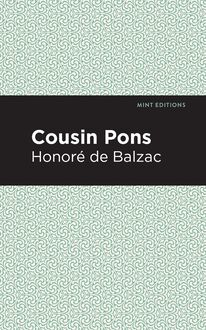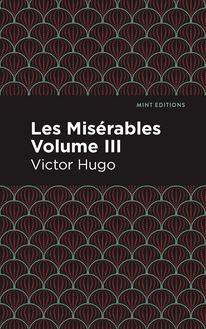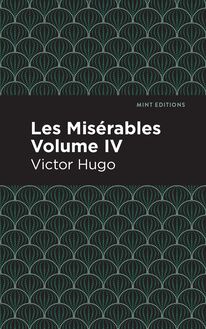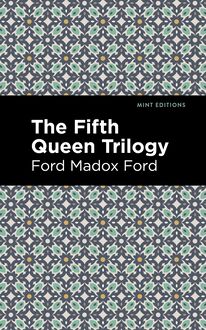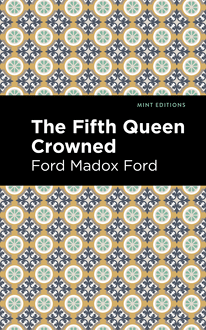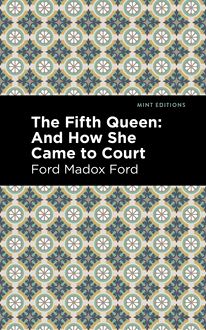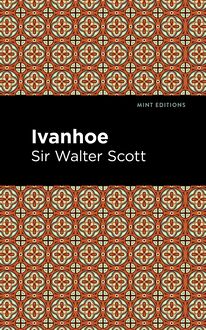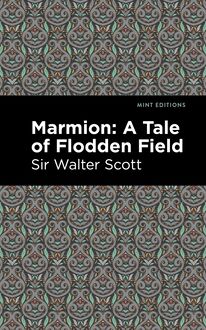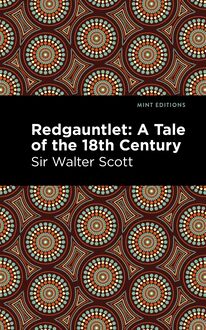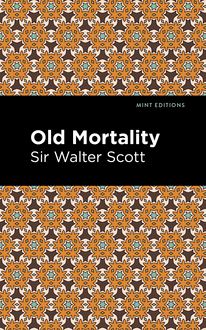-
 Univers
Univers
-
 Ebooks
Ebooks
-
 Livres audio
Livres audio
-
 Presse
Presse
-
 Podcasts
Podcasts
-
 BD
BD
-
 Documents
Documents
-
- Cours
- Révisions
- Ressources pédagogiques
- Sciences de l’éducation
- Manuels scolaires
- Langues
- Travaux de classe
- Annales de BEP
- Etudes supérieures
- Maternelle et primaire
- Fiches de lecture
- Orientation scolaire
- Méthodologie
- Corrigés de devoir
- Annales d’examens et concours
- Annales du bac
- Annales du brevet
- Rapports de stage
La lecture à portée de main
Vous pourrez modifier la taille du texte de cet ouvrage
Découvre YouScribe en t'inscrivant gratuitement
Je m'inscrisDécouvre YouScribe en t'inscrivant gratuitement
Je m'inscrisEn savoir plus
Vous pourrez modifier la taille du texte de cet ouvrage
En savoir plus

Description
Edward Waverly enjoyed a privileged upbringing, despite his family’s drama. Coming of age during a political uprising, Edward’s time is split between his father and his uncle, who each have opposing political views, which causes a rift in the family. His uncle is a traditional British subject that wishes to overthrow the government so that Charles Edward Stuart is restored to power, commonly known as a Jacobite. However, Edward’s father is a Hanoverian, a citizen who supports the current government. Raised between the two, Edward himself has flippant views. In fact, he is more interested in chasing women than his studies or politics. For this reason, Edward’s aunt decides to send him to the army. Serving as a Hanoverian soldier, Edward takes his training about as seriously as he took his studies, but as his regiment travels around Scottland, Edward is taken by the beauty of the nation and its culture, especially falling for a young woman named Flora. Though Edward quickly becomes enamored by Flora, he soon realizes that their romance is ill-fated, as he is a Hanoverian soldier, and Flora is a dedicated Jacobite. While Edward challenges his own political views for love, more chaos unfolds, including war, uprisings, and accusations of treason. First published anonymously in 1814, Waverley rose to almost immediate fame, praised for its authenticity and comedy. Already famous as a poet, Sir Walter Scott eventually admitted that this extraordinary historical novel was among his first attempts to publish his prose fiction. With themes of war and tolerance and beautiful prose, Waverley depicts a young soldier’s struggle with love and beliefs as he travels across Scottland. Featuring stunning detail, the landscape and culture of 18th century Scottland is beautifully represented as is the fascinating history of the Jacobite uprising of 1745. This edition of Waverley by Sir Walter Scott now features an eye-catching cover design and is printed in a font that is both modern and readable. With these accommodations, this edition of Waverley crafts an accessible and pleasant reading experience for modern audiences while restoring the original mastery of Sir Walter Scott’s literature.
Sujets
Informations
| Publié par | Mint Editions |
| Date de parution | 14 mai 2021 |
| Nombre de lectures | 0 |
| EAN13 | 9781513285337 |
| Langue | English |
| Poids de l'ouvrage | 1 Mo |
Informations légales : prix de location à la page 0,0550€. Cette information est donnée uniquement à titre indicatif conformément à la législation en vigueur.
Extrait
Waverley
Sir Walter Scott
Waverley was first published in 1814.
This edition published by Mint Editions 2021.
ISBN 9781513280318 | E-ISBN 9781513285337
Published by Mint Editions ®
minteditionbooks .com
Publishing Director: Jennifer Newens
Design & Production: Rachel Lopez Metzger
Project Manager: Micaela Clark
Typesetting: Westchester Publishing Services
C ONTENTS V OLUME I I. I NTRODUCTORY II. W AVERLEY H ONOUR —A R ETROSPECT III. E DUCATION IV. C ASTLE -B UILDING V. C HOICE OF A P ROFESSION VI. T HE A DIEUS OF W AVERLEY VII. A H ORSE -Q UARTER IN S COTLAND VIII. A S COTTISH M ANOR -H OUSE S IXTY Y EARS S INCE IX. M ORE OF THE M ANOR -H OUSE AND ITS E NVIRONS X. R OSE B RADWARDINE AND H ER F ATHER XI. T HE B ANQUET XII. R EPENTANCE AND A R ECONCILIATION XIII. A M ORE R ATIONAL D AY THAN THE L AST XIV. A D ISCOVERY —W AVERLEY B ECOMES D OMESTICATED AT T ULLY -V EOLAN XV. A C REAGH , AND ITS C ONSEQUENCES XVI. A N U NEXPECTED A LLY A PPEARS XVII. T HE H OLD OF A H IGHLAND R OBBER XVIII. W AVERLEY P ROCEEDS ON H IS J OURNEY XIX. T HE C HIEF AND H IS M ANSION XX. A H IGHLAND F EAST XXI. T HE C HIEFTAIN ’ S S ISTER XXII. H IGHLAND M INSTRELSY XXIII. W AVERLEY C ONTINUES AT G LENNAQUOICH XXIV. A S TAG -H UNT AND ITS C ONSEQUENCES XXV. N EWS FROM E NGLAND XXVI. A N E CLAIRCISSEMENT XXVII. U PON THE S AME S UBJECT XXVIII. A L ETTER FROM T ULLY -V EOLAN XXIX. W AVERLEY ’ S R ECEPTION IN THE L OWLANDS AFTER H IS H IGHLAND T OUR V OLUME II I. S HOWS THAT THE L OSS OF A H ORSE ’ S S HOE M AY B E A S ERIOUS I NCONVENIENCE II. A N E XAMINATION III. A C ONFERENCE AND THE C ONSEQUENCE IV. A C ONFIDANT V. T HINGS M END A L ITTLE VI. A V OLUNTEER S IXTY Y EARS S INCE VII. A N I NCIDENT VIII. W AVERLEY IS S TILL IN D ISTRESS IX. A N OCTURNAL A DVENTURE X. T HE J OURNEY IS C ONTINUED XI. A N O LD AND A N EW A CQUAINTANCE XII. T HE M YSTERY B EGINS TO BE C LEARED U P XIII. A S OLDIER ’ S D INNER XIV. T HE B ALL XV. T HE M ARCH XVI. A N I NCIDENT G IVES R ISE TO U NAVAILING R EFLECTIONS XVII. T HE E VE OF B ATTLE XVIII. T HE C ONFLICT XIX. A N U NEXPECTED E MBARRASSMENT XX. T HE E NGLISH P RISONER XXI. R ATHER U NIMPORTANT XXII. I NTRIGUES OF L OVE AND P OLITICS XXIII. I NTRIGUES OF S OCIETY AND L OVE XXIV. F ERGUS A S UITOR XXV. “T O O NE T HING C ONSTANT N EVER ” XXVI. A B RAVE M AN IN S ORROW XXVII. E XERTION XXVIII. T HE M ARCH XXIX. T HE C ONFUSION OF K ING A GRAMANT ’ S C AMP XXX. A S KIRMISH XXXI. C HAPTER OF A CCIDENTS XXXII. A J OURNEY TO L ONDON XXXIII. W HAT ’ S TO BE D ONE N EXT ? XXXIV. D ESOLATION XXXV. C OMPARING OF N OTES XXXVI. M ORE E XPLANATION XXXVII. XXXVIII. XXXIX. XL. XLI. D ULCE D OMUM XLII. XLIII. A P OSTSCRIPT W HICH S HOULD H AVE B EEN A P REFACE N OTES —V OLUME I G LOSSARY —V OLUME I N OTES —V OLUME II G LOSSARY —V OLUME II
VOLUME I
I
I NTRODUCTORY
The title of this work has not been chosen without the grave and solid deliberation which matters of importance demand from the prudent. Even its first, or general denomination, was the result of no common research or selection, although, according to the example of my predecessors, I had only to seize upon the most sounding and euphonic surname that English history or topography affords, and elect it at once as the title of my work and the name of my hero. But, alas! what could my readers have expected from the chivalrous epithets of Howard, Mordaunt, Mortimer, or Stanley, or from the softer and more sentimental sounds of Belmour, Belville, Belfield, and Belgrave, but pages of inanity, similar to those which have been so christened for half a century past? I must modestly admit I am too diffident of my own merit to place it in unnecessary opposition to preconceived associations; I have, therefore, like a maiden knight with his white shield, assumed for my hero, W AVERLEY , an uncontaminated name, bearing with its sound little of good or evil, excepting what the reader shall hereafter be pleased to affix to it. But my second or supplemental title was a matter of much more difficult election, since that, short as it is, may be held as pledging the author to some special mode of laying his scene, drawing his characters, and managing his adventures. Had I, for example, announced in my frontispiece, “Waverley, a Tale of other Days,” must not every novel-reader have anticipated a castle scarce less than that of Udolpho, of which the eastern wing had long been uninhabited, and the keys either lost, or consigned to the care of some aged butler or housekeeper, whose trembling steps, about the middle of the second volume, were doomed to guide the hero, or heroine, to the ruinous precincts? Would not the owl have shrieked and the cricket cried in my very title-page? and could it have been possible for me, with a moderate attention to decorum, to introduce any scene more lively than might be produced by the jocularity of a clownish but faithful valet, or the garrulous narrative of the heroine’s fille-de-chambre, when rehearsing the stories of blood and horror which she had heard in the servants’ hall? Again, had my title borne, “Waverley, a Romance from the German,” what head so obtuse as not to image forth a profligate abbot, an oppressive duke, a secret and mysterious association of Rosycrucians and Illuminati, with all their properties of black cowls, caverns, daggers, electrical machines, trap-doors, and dark-lanterns? Or if I had rather chosen to call my work a “Sentimental Tale,” would it not have been a sufficient presage of a heroine with a profusion of auburn hair, and a harp, the soft solace of her solitary hours, which she fortunately finds always the means of transporting from castle to cottage, although she herself be sometimes obliged to jump out of a two-pair-of-stairs window, and is more than once bewildered on her journey, alone and on foot, without any guide but a blowzy peasant girl, whose jargon she hardly can understand? Or, again, if my Waverley had been entitled “A Tale of the Times,” wouldst thou not, gentle reader, have demanded from me a dashing sketch of the fashionable world, a few anecdotes of private scandal thinly veiled, and if lusciously painted, so much the better? a heroine from Grosvenor Square, and a hero from the Barouche Club or the Four-in-Hand, with a set of subordinate characters from the elegantes of Queen Anne Street East, or the dashing heroes of the Bow-Street Office? I could proceed in proving the importance of a title-page, and displaying at the same time my own intimate knowledge of the particular ingredients necessary to the composition of romances and novels of various descriptions;—but it is enough, and I scorn to tyrannise longer over the impatience of my reader, who is doubtless already anxious to know the choice made by an author so profoundly versed in the different branches of his art.
By fixing, then, the date of my story Sixty Years before this present 1st November, 1805, I would have my readers understand, that they will meet in the following pages neither a romance of chivalry nor a tale of modern manners; that my hero will neither have iron on his shoulders, as of yore, nor on the heels of his boots, as is the present fashion of Bond Street; and that my damsels will neither be clothed “in purple and in pall,” like the Lady Alice of an old ballad, nor reduced to the primitive nakedness of a modern fashionable at a rout. From this my choice of an era the understanding critic may farther presage that the object of my tale is more a description of men than manners. A tale of manners, to be interesting, must either refer to antiquity so great as to have become venerable, or it must bear a vivid reflection of those scenes which are passing daily before our eyes, and are interesting from their novelty. Thus the coat-of-mail of our ancestors, and the triple-furred pelisse of our modern beaux, may, though for very different reasons, be equally fit for the array of a fictitious character; but who, meaning the costume of his hero to be impressive, would willingly attire him in the court dress of George the Second’s reign, with its no collar, large sleeves, and low pocket-holes? The same may be urged, with equal truth, of the Gothic hall, which, with its darkened and tinted windows, its elevated and gloomy roof, and massive oaken table garnished with boar’s-head and rosemary, pheasants and peacocks, cranes and cygnets, has an excellent effect in fictitious description. Much may also be gained by a lively display of a modern fete, such as we have daily recorded in that part of a newspaper entitled the Mirror of Fashion, if we contrast these, or either of them, with the splendid formality of an entertainment given Sixty Years Since; and thus it will be readily seen how much the painter of antique or of fashionable manners gains over him who delineates those of the last generation.
Considering the disadvantages inseparable from this part of my subject, I must be understood to have resolved to avoid them as much as possible, by throwing the force of my narrative upon the characters and passions of the actors;—those passions common to men in all stages of society, and which have alike agitated the human heart, whether it throbbed under the steel corslet of the fifteenth century, the brocaded coat of the eighteenth, or the blue frock and white dimity waistcoat of the present day. 1 Upon these passions it is no doubt true that the state of manners and laws casts a necessary colouring; but the bearings, to use the language of heraldry, remain the same, though the tincture may be not only different, but opposed in strong contradistinction. The wrath of our ancestors, for e
-
 Univers
Univers
-
 Ebooks
Ebooks
-
 Livres audio
Livres audio
-
 Presse
Presse
-
 Podcasts
Podcasts
-
 BD
BD
-
 Documents
Documents
-
Jeunesse
-
Littérature
-
Ressources professionnelles
-
Santé et bien-être
-
Savoirs
-
Education
-
Loisirs et hobbies
-
Art, musique et cinéma
-
Actualité et débat de société
-
Jeunesse
-
Littérature
-
Ressources professionnelles
-
Santé et bien-être
-
Savoirs
-
Education
-
Loisirs et hobbies
-
Art, musique et cinéma
-
Actualité et débat de société
-
Actualités
-
Lifestyle
-
Presse jeunesse
-
Presse professionnelle
-
Pratique
-
Presse sportive
-
Presse internationale
-
Culture & Médias
-
Action et Aventures
-
Science-fiction et Fantasy
-
Société
-
Jeunesse
-
Littérature
-
Ressources professionnelles
-
Santé et bien-être
-
Savoirs
-
Education
-
Loisirs et hobbies
-
Art, musique et cinéma
-
Actualité et débat de société
- Cours
- Révisions
- Ressources pédagogiques
- Sciences de l’éducation
- Manuels scolaires
- Langues
- Travaux de classe
- Annales de BEP
- Etudes supérieures
- Maternelle et primaire
- Fiches de lecture
- Orientation scolaire
- Méthodologie
- Corrigés de devoir
- Annales d’examens et concours
- Annales du bac
- Annales du brevet
- Rapports de stage

